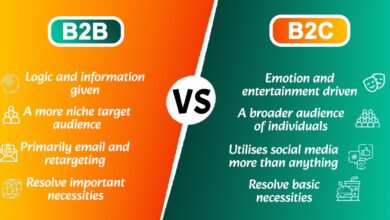Prepaid Electricity Plans Houston: How They Work

Electricity is essential for living a comfortable and healthy life. Unfortunately, some people may not have access to reliable electric service. If this is the case for you, prepaid electricity plans may be a good option for you. In this article, we will explain how prepaid electricity plans work in Houston and what factors you should consider when choosing one.
What is a Prepaid Electricity Plan?
Prepaid electricity plans are a great way to save on your energy bill. They allow you to pay for your electricity in advance, usually over a set period of time. This can help you avoid high energy bills during peak hours or when prices are higher.
Here are some things to keep in mind when choosing a prepaid electricity plan:
- Make sure the plan is affordable and fits into your budget. Some plans are more expensive than others.
- Make sure the plan has an extended billing period. This means that the plan will continue to charge you even if you don’t use all of your allotted energy in a given month.
- Compare plans based on their features, such as how many devices can be connected at once, how long the plan lasts, and how much it will cost per month.
How Do Prepaid Electricity Plans Work?
If you’re looking for a way to save on your energy bill, prepaid electricity plans may be a good option for you. With these plans, you pay for a set amount of electricity upfront, and then use that money to purchase blocks of electricity at regular intervals. This way, you’ll always have enough energy to power your devices and appliances. Plus, prepaid electricity plans often have lower rates than traditional electricity providers.
To find the best prepaid electricity plan for you, consider your needs and preferences. For example, do you want to be able to add or remove blocks of electricity at any time? Is monthly billing preferable to daily billing? And is there a preferred provider? Once you’ve determined your needs, search for a plan that meets those criteria and offers the best deal available.
Prepaid electricity plans can be an affordable way to save on your energy bill. Make sure to compare rates and plan details before signing up.
The Different Types of prepaid electricity plans
Prepaid electricity plans can be broken down into three categories: time-of-use, fixed-price, and variable-price. Time-of-use plans are the most popular option and allow customers to select a time of day when their electricity usage is highest, and pay for that electricity at that time. Fixed-price plans allow customers to contract for a certain amount of electricity each month, regardless of how much they use. Variable-price plans allow customers to pay based on how much energy they use, with lower rates offered during off-peak hours.
Prepaid electricity plans can also come with perks like energy credits or rebates. Energy credits are worth money when redeemed against future purchases of electricity. Rebates are given to prepaid customers who sign up for a plan and meet certain eligibility requirements, like being a new customer or having an existing account with a participating provider.
Prepaid electricity plans offer many advantages over traditional utility bills. They’re convenient because they’re paid upfront and there’s no need to worry about late payments or overspending. Furthermore, prepaid plans tend to have lower rates than traditional utilities, which can make them a more affordable option for users who use a lot of energy.
The Advantages of a Prepaid Electricity Plan
Prepaid electricity plans are a great way to save money on your energy bill. When you have a prepaid electricity plan, you pay for your energy in advance. This means that you only have to worry about the cost of your energy when you actually use it. You don’t have to worry about pre-paying for months or years at a time, and you don’t have to deal with unexpected bills.
The main advantage of prepaid electricity plans is that you can control how much money you spend on your energy bill. If you only use a small amount of energy each month, then a prepaid electricity plan may be a better option for you. However, if you use a lot of energy each month, then a prepaid electricity plan may not be the best option for you.
Prepaid electricity plans also offer other advantages. For example, prepaid electricity plans usually come with free cancellation and upgrade privileges. This means that you can easily change your plan if it becomes necessary. Additionally, most prepaid electricity plans come with a variety of benefits, such as discounts on appliances and services or access to special offers.
The drawbacks of prepaid electricity plans
Prepaid electricity plans are a great way to save money on your energy bill, but there are some drawbacks to consider. Before signing up for a prepaid electricity plan, be sure to ask the following questions:
How often will I need to refill my account?
If you only use energy when you need it, a prepaid electricity plan with monthly refills may be ideal for you. If you frequently go over your limit, though, you’ll likely need to recharge more often with a plan with daily or even hourly refills.
What if my home’s energy needs change?
If your home’s energy needs suddenly increase (for example, if you add a new appliance or get a new HVAC system), your prepaid electricity plan may not cover that increased usage. Ask your provider about how much extra money you’ll need to bring on board to cover those additional expenses.
How much does the provider charge for out-of-network usage?
If you use more than your allotted amount of energy from an out-of-network provider, the provider may charge you extra for that usage. Check the terms and conditions of your plan to see if that applies to you.
Prepaid electricity plans Houston can be an excellent way to save money on your energy bill, especially if you use a high amount of electricity during peak hours. Prepaid electricity plans are prepaid meters that allow customers to load a certain amount of credits onto their account each month. When the meter reaches the credit limit, the customer is then billed for the remaining balance at their regular monthly rate.




